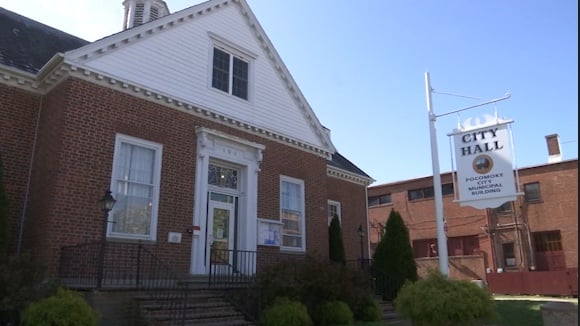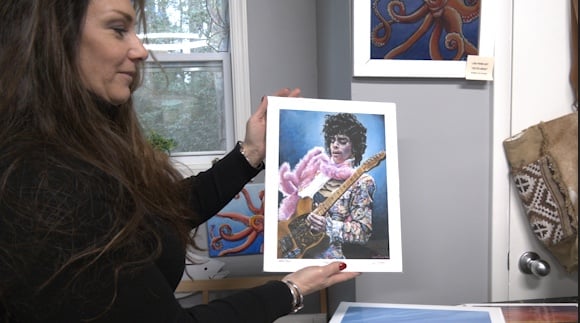Back To School 2020: Part One
47 ABC – In March of 2020 almost everyone thought schools shutting down would be a temporary situation and that students would be back in class like normal in no time. Roughly half a year later, normal is nothing close to where we are.
For most of Delmarva the start of school this year looked eerily similar to the way it did at the end of the last school year with rooms in homes turned into classrooms and students learning online and as many of them plainly put it, it’s not easy, but they’re making the best out of it.
“It’s okay, I feel like it’s just really different and it’s not what I’m used to. I prefer going to normal school though cause I can see people and talk to people, it’s more interactive,” said Julia Gore, a ninth-grader in Wicomico County Public Schools.
For Julia and her brother Dylan Gore who’s in 11th grade their days start after 10 am. Every day during the week except for Wednesday has synchronous learning, meaning it’s live on their screen and they can participate in real-time.
“My first class is physics, so he usually does some problems with us on like a note pad and we take notes and we do some practice problems on our own maybe and in other classes like history or English, they usually have power points and we take notes and stuff like that,” said Dylan.
Since both are older they’ve adjusted to online learning. However, for some younger students, the transition has not been as easy
“Uh, it’s kind of stressful,” said Noah Habermeyer, a fourth-grader in Wicomico County Public Schools.
Noah Habermeyer has three sisters, all of them are doing completely virtual learning.
One is in pre-K. One is in 6th grade and the oldest is in 9th grade. All of them learn within feet of each other sprawled out between the dining room, kitchen, and family room.
While they learn their mother, Jenna, balances a part-time job while also playing the teacher’s assistant.
“I’m doing I.T. and math and English and history and cafeteria service,” said Habermeyer, “Yeah, it’s very stressful.”
For the Habermeyer’s who must rely on hotspots provided by the county schools to get high-speed internet and with all of the learning so close, each day is an adventure.
“We often think that each other are talking to each other and so we’re all in each other’s space and classes,” said Habermeyer. “One of them was crying today because it’s really difficult.”
For her daughter Claire, she says the hardest part has been getting questions answered during her English Learning Arts class.
“Sometimes they can’t hear you whenever you like raise your hand, sometimes they just ignore it and it’s just hard,” Claire said.
On top of the learning struggles though, there’s an emotional component too. The students learning online miss their friends.
“I miss it a lot. I miss seeing my friends. I mean I guess you kind of see them on the zoom calls but you can’t really socialize with them because most of the time they want you to stay on mute,” said Dylan Gore.
According to psychologist Dr. Kathy Seifert, the lack of social interaction that students normally get at school can actually be harmful to the development of teenagers.
“You’re into the adolescent arena where that interaction developmentally, the interaction with peers is really, really important,” said Dr. Seifert.
That’s why she says it’s important for them to get interaction elsewhere whether it be using social media or seeing their friends outside of school.
For Angie Alonge, she says her children Dylan and Julia Gore are doing that now, but she fears for how they can keep it up.
“As well as they’re adjusting so far to virtual many kids are not good with that and really I feel like their futures are going to be impacted by this in a very huge way,” Alonge said.
However, for younger children, Dr. Seifert says the lasting impacts could come from those who are in homes where they’re having problems with parental figures and not getting the positive adult interactions and reinforcement they would normally get at school.
“They’re not learning at home the things they need to learn and if they sit in their room and take care of their schoolwork by themselves still not getting that adult guidance and interaction which really kids need until adolescence,” Dr. Seifert said.
The harsh reality according to Dr. Seifert, is that some children will fall through the cracks. Either because of online access, their ability to learn online, or because a parent or guardian isn’t around. The good news is that most parents and students are trying and as it would seem, making the best out a situation that none of us want to be in.
“Today was easier than last week so it takes some time getting used to and working out the kinks,” Habermeyer said.

